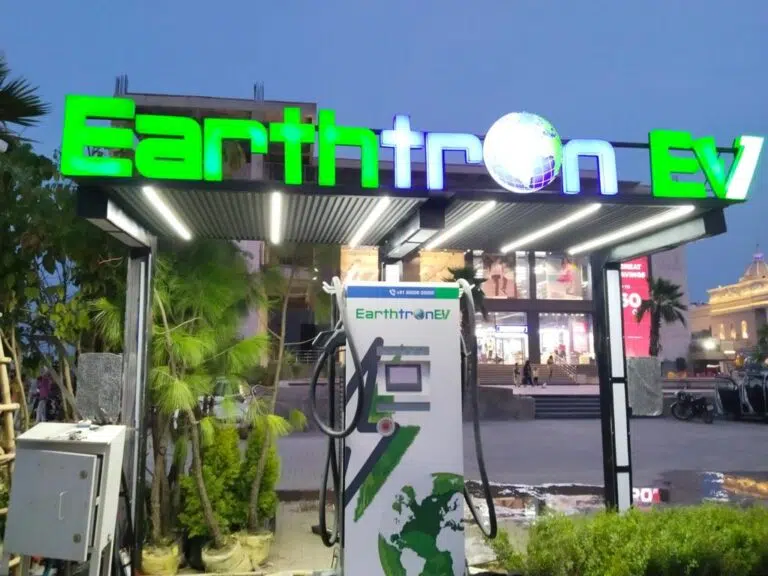India is witnessing a paradigm shift in the automotive landscape with the increasing adoption of electric vehicles (EVs) also EV charging stations in India. As the nation strides toward a sustainable future, the development of Electric Vehicle Charging Stations (EVCS) plays a pivotal role in supporting the widespread use of electric vehicles. This article explores the current status, challenges, and prospects of EV charging infrastructure in India.
Current Scenario
Over the past few years, India has witnessed a surge in the number of electric vehicles on its roads, driven by a growing awareness of environmental concerns and government incentives. To complement this shift, the establishment of a robust EV charging infrastructure is crucial. As of 2023, India boasts an expanding network of EV charging stations, primarily concentrated in urban centers and along major highways.
Types of Charging Stations:
- Public Charging Stations (PCS): Public charging stations are strategically located in public spaces, commercial areas, and along highways. These stations offer fast and convenient charging options for electric vehicle owners on the go. Top EV charger manufacturers in India like Tata Power, ChargePoint, and EVRE are actively contributing to the expansion of the public charging network.
- Home Charging Solutions: Recognizing the importance of convenient charging for EV owners, many companies provide home charging solutions. These setups allow EV users to charge their vehicles in the comfort of their homes, promoting hassle-free charging and reducing the dependency on public stations.
Challenges for EV Charging Stations in India
While progress has been made, some challenges hinder the widespread adoption of EV charging infrastructure in India:
- Range Anxiety: The fear of running out of battery power before reaching a charging station, known as range anxiety, is a psychological barrier for potential EV buyers. Addressing this concern requires a denser charging station network to ensure easy accessibility.
- Cost of Infrastructure: Establishing charging stations involves significant investment in technology, land, and equipment. The cost of setting up charging infrastructure remains a challenge, and partnerships between the government and private sector entities are essential to overcome financial barriers.
- Standardization and Interoperability: The lack of standardized charging protocols and interoperability between different EV models and charging stations can pose a challenge. Universal standards will ensure EV users have a seamless charging experience across various platforms.
Government Initiatives for EV Charging Stations in India
The Indian government has recognized the importance of a robust charging infrastructure and has taken several initiatives to encourage its development:
- FAME (Faster Adoption and Manufacturing of Hybrid and Electric Vehicles) Scheme: Launched by the Ministry of Heavy Industries and Public Enterprises, FAME aims to incentivize the production and adoption of electric vehicles and charging infrastructure.
- National Electric Mobility Mission Plan (NEMMP): This initiative outlines the vision and roadmap for the faster adoption of electric vehicles and their manufacturing in the country.
Future Outlook for EV Charging Stations in India
The future of EV charging stations in India looks promising with various stakeholders actively contributing to the growth of the sector. Anticipating an exponential increase in electric vehicles, private companies, government bodies, and startups are collaborating to build a comprehensive charging infrastructure.
- Increased Public-Private Partnerships: The escalating growth of electric vehicles (EVs) in India has prompted an urgent need for an extensive and efficient charging infrastructure. Recognizing the critical role that charging stations play in supporting the widespread adoption of EVs, there has been a notable emphasis on fostering increased collaborations between the government and private sector entities. These public-private partnerships (PPPs) are poised to catalyze overcoming financial constraints and accelerating the deployment of EV charging stations across the country.
- Technology Integration: Advancements in technology, such as fast-charging solutions and smart grid integration, will play a pivotal role in enhancing the efficiency and accessibility of charging stations. The integration of renewable energy sources into the charging infrastructure can also contribute to a greener and more sustainable ecosystem.
- Education and Awareness: Continued efforts in educating the public about the benefits of electric vehicles and the availability of charging infrastructure are crucial. Increased awareness will contribute to a positive mindset shift, reducing apprehensions and encouraging the widespread adoption of EVs.
Conclusion
The exponential expansion of electric vehicle (EV) charging stations across India underscores the nation’s unwavering dedication to fostering sustainable and environmentally friendly mobility. Despite encountering persistent challenges, the collaborative endeavors of the government, private sector, and diverse stakeholders are progressively laying the groundwork for a future in which electric vehicles and their associated charging infrastructure become indispensable components of India’s transportation ecosystem.
As technological advancements persist and awareness regarding the benefits of EVs grows, the charging infrastructure in India is on the brink of transformative development. This evolution not only symbolizes a commitment to green and clean energy but also signifies a pivotal shift in the automotive industry. The concerted efforts of all involved parties are heralding a green revolution that is poised to reshape the landscape of transportation in India, propelling the country towards a sustainable and eco-friendly future.

